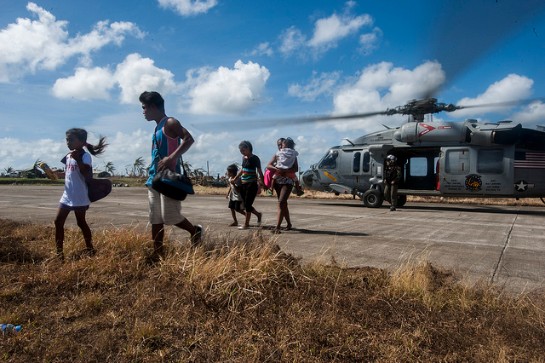
Holland Featured at “Insights from a National Dialogue on Climate Change, Energy, and Security”
The following is a summary of several recent climate security related events in the Washington, D.C area. This includes:
Insights from a National Dialogue on Climate Change, Energy, and Security
On the Road to Paris – Dangerous Intersection: Climate Change and National Security
2015 Henry Bacon Breakfast Seminar: Security Implications of Climate Change
October 21, 2015 – Andrew Holland, Director of Studies and Senior Fellow at the American Security Project, joined “ Insights from a National Dialogue on Climate Change, Energy, and Security” conference as a featured speaker co- sponsored by CNA , the EU Delegation to the United States, the Henry M. Jackson Foundation, and the Energy Foundation in the Wilson Center, Washington, D.C to talk about climate security in the United States today.
“American government works,” he stated. “At all levels- states, local, and federal government is forward looking and planning for extreme weather events in the immediate, and how to deal with it in them future.” This planning- both for prevention and confrontation, also involves the military.
Holland expressed that “Nobody cares about climate change as a national security issue. They care about climate change when the rise in sea-level affects my city.” Even though climate change is a threat for nations, people tend to not frame this topic as a national security threat because people are not recognizing the huge impact of climate change towards human living yet.
He also addressed that “people care more about their own backyard”, and don’t recognize the impacts of extreme weather events and climate change until it impacts them directly. Holland cited the reality of drought as a motivator in the ongoing Syrian conflict that continues to be left out of the conversation on the Syrian refugee crisis.
The Environmental Law Institute’s October 20th “On the Road to Paris – Dangerous Intersection: Climate Change and National Security” conference touched on this same issue.
Focused on preparation for the COP 21 in December, Paris, the moderator and speakers discussed the effects of climate change on the world related to the current refugee crisis in Syria as known as climate refugees. A combination of conflict, disaster, food scarcity, and rise in population influenced migration. Climate change will continue to intensify these factors, further fueling the conflict- leaving Syria in an even more vulnerable state. caused mobility of refugees because human mobility happens when there is no longer water or food for the population. And climate change will intensify the conflict and leave Syria vulnerable. No one would predict that Syria could be this fragile.
At the end of the conference, they addressed that “we are inside of the climate change bubble and trying to figure out some way to deal with it without knowing how much it costs in the future.” It is hard to understand the change of climate because it is unpredictable; it is time to reduce the effect of climate change by cutting down its causes.
October 21st’s “2015 Henry Bacon Breakfast Seminar: Security Implications of Climate Change,” sponsored by the Norwegian Embassy. The Hon. Sheldon Whitehouse, keynote speaker for the event, argued that “combating climate change is not the responsibility of NGOs or the United Nations”, but “it is a cooperation of corporate, community, and politiciansto work together to find the solution.” An effective solution must combine policy and advocacy, he said.
Moreover, Dr. Joshua Busby addressed that “climate change needs risk management”. He also recognized that climate change is a relatively young field for researchers with comparatively limited collected data. Data collection and verification, he said, must be improved to better understand the linkages of food security and weather events.





